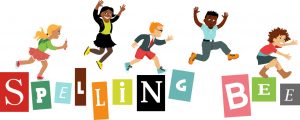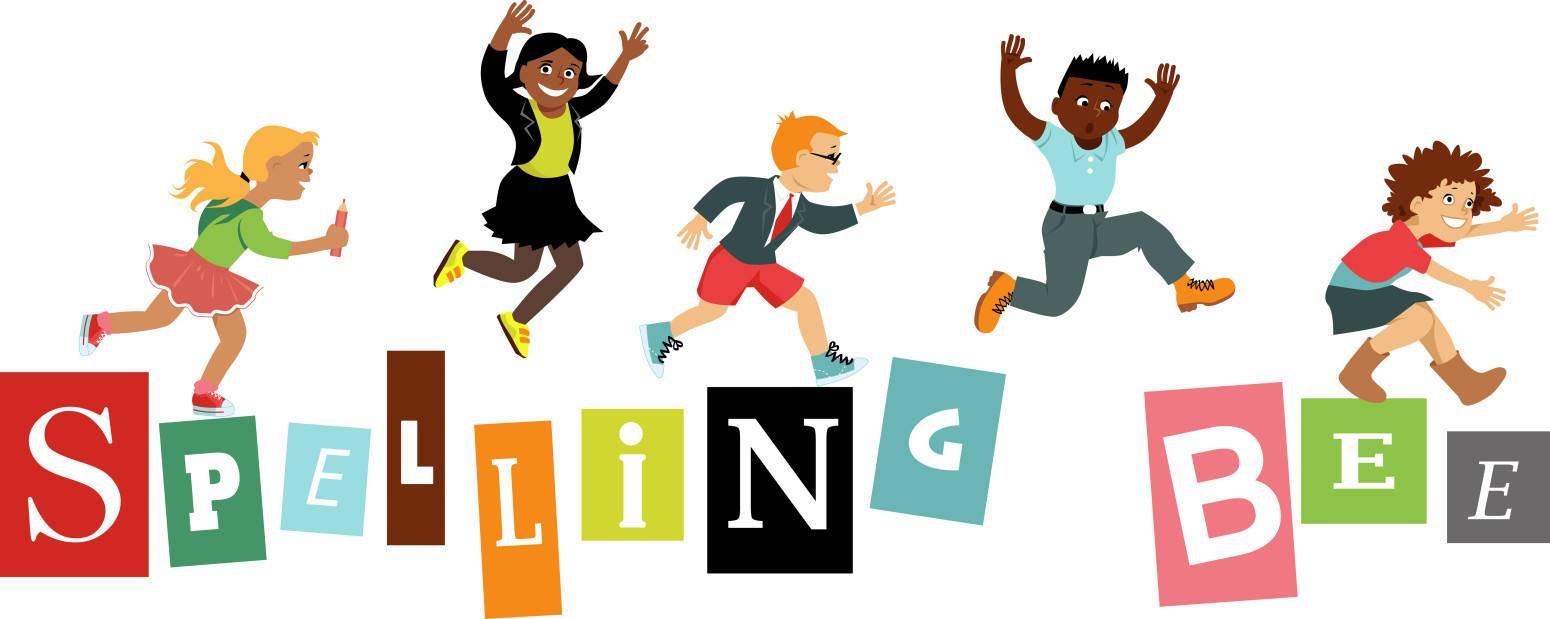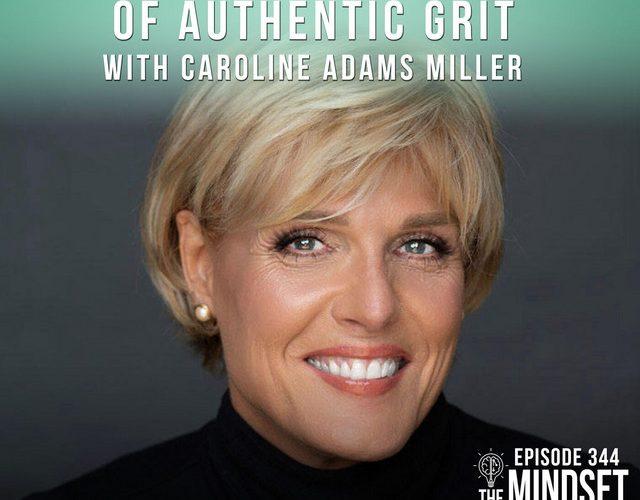
May 28, 2019
Can You Spell G-R-I-T?
No, it’s not football or baseball or women’s World Cup soccer that millions of fans will watch this week on ESPN. Starting on May 27th and finishing with the final round on May 30th at National Harbor just outside of Washington, D.C., is the 92nd annual Scripps National Spelling Bee. Although it’s not a physical contact sport, preparing for the Bee takes years of rigorous work, usually starting at a young age. And because the winner/s (there have been an unusual number of ties for first place in recent years) are always young teenagers, it’s not unusual to see contestants as young as six or who are missing front teeth, sweating under the bright lights as they spell some of the oddest words any of them will ever hear, but will probably never use for the rest of their lives.
When I was a Master’s student at the University of Pennsylvania in the pioneering degree program for Applied Positive Psychology in 2005, I met Dr. Angela Duckworth, who was doing her PhD work under Dr. Martin Seligman, the “father of Positive Psychology,” on a topic they were calling “grit.” Their working definition of the term was “passion and perseverance in pursuit of long-term goals,” and they’d created a “Grit Scale” to measure this quality. It wasn’t long before the scale was being used to determine who had this special character sauce, which they believed was different from simple conscientiousness or dogged persistence. Not surprisingly, they found that the finalists of the Bee had higher grit scores than those who didn’t advance as far.

Dr. Angela Duckworth, author of “Grit” and MacArthur Genius Grant winner for her research, has been an amazing friend, mentor and role model to me as I tackled and wrote a book about the topic of “how” to get grit, and why some grit isn’t good.
When I wrote Getting Grit, I decided to open the book with a description of the Bee and the role grit played in contestants’ lives. In honor of this week’s competition, here is an excerpt from Chapter One of that book, followed by some important takeaways on how to cultivate this important quality.
Excerpt from Chapter One of Getting Grit
Every spring in Washington, DC, there are two annual occurrences we look forward to: the cherry blossoms that explode in frothy pink beauty around the National Mall, and the Scripps National Spelling Bee. Founded in 1925, the Bee is a popular nationwide contest open to students as young as six and as old as fourteen, hundreds of whom descend on the city after winning regional bees in their state. Contestants are winnowed down through preliminary rounds, and the final rounds are televised live.
A sports channel, ESPN covers the nerve-wracking competition with as much diligence and thoroughness as they bring to other athletic contests. It’s easy to understand why they do so after watching the Bee for just a few minutes. The same kinds of stresses and mental demands that mature athletes face in competition are on display here, but among boys and girls, most of whom haven’t hit puberty yet. One at a time, kids in braces, kids with acne, and girls with jaunty bows on top of their heads come silently to the front of the stage, some needing to stand on a chair to reach the microphone, and they’re asked to spell some of the most arcane words on the planet. They have to do all of this under hot lights and the pressure of time, one letter at a time, while millions of viewers watch them and the children’s parents gulp, perspire, and pray from the audience. Because of the contestants’ excellent preparation, this can go on for hours and hours, round after round, sometimes late into the night, as it has for the last several years. Starting in 2014, the Bee has had to name co-champions because they couldn’t stump some relentless finalists, who hung on through fourteen rounds until the Bee ran out of words to quiz them on.
Time magazine did a story on some of the Bee’s former winners in a “Where Are They Now?” feature, in May 2016, and found that many had gone on to be successful professionals, often blazing pathways in the fields of education, investment, journalism, medicine, and economics. They credited their years of spelling competition with lifelong benefits, especially their preparation for and participation in the nerve-wracking National Spelling Bee. Wendy Guey Lai said that studying for the Bee taught her how to be “resilient, detail-oriented, and exhibit grace under pressure.” Pratyush Buddiga said that he’d become good at “pattern recognition” and “trusting my gut instincts.” Balu Natarajan, who won the Bee on his third try, noted that the competition is more like “a marathon and not a sprint,” and said that his professional career in sports medicine had been impacted by the Bee: “It takes years for most of the kids to hold up that trophy or make it to the national competition. That’s what allowed me to have an appreciation for endurance athletes and enjoy taking care of them.”
When Angela Duckworth was beginning to refine her study of the personality trait she called “grit” at the University of Pennsylvania in 2005, she wondered if the resilient and determined kids she and everyone else saw on television possessed the quality she was defining as “passion and perseverance in pursuit of long-term goals.” So she was permitted access to the 273 participants in the 2005 Bee, over half of whom agreed to fill out forms and submit to questions about their work habits, intelligence, and number of years competing in spelling contests. She also administered her newly developed Grit Scale, which contained questions such as “I often choose a goal but later decide to pursue a different one” and “I have overcome setbacks to accomplish an important challenge.” After the results were crunched, self-control was an important success factor, but when the age of the participants was factored out, the Grit Scale was the leading predictor of who reached the finals of the Bee. Later parsing of the data showed that much of what nurtured the grit was failing to advance one year, which meant that those students went home and studied even harder, doing much of it on weekends in solitary study.
Duckworth’s study of legions of successful men and women – like the Bee contestants – across multiple domains, including investment banking, swimming, football, and chess, has found that there are common denominators in all of these people that are worth unpacking so that we can learn how to emulate their approach to their goals. She found that the people who had distinguished themselves in overcoming multiple challenges over many years to sustain the pursuit of something that was important to them had several critical qualities in common, namely:
- Passion. They were lit up from within by a cause or an activity that electrified and energized them, sometimes from a young age. They weren’t guided by what others wanted; instead, they were single-mindedly focused on something that crowded out other interests, gave their lives meaning, and filled them with a sense of purpose.
- Perseverance. They weren’t just resilient in the short run. They had a bounce-back quality that existed throughout years of emotional droughts, physical and financial setbacks, and discouragements that would cause many people to give up.
- Long-term goals. They attached a goal to their passion that might have seemed unrealistic to some, but that became their immovable North Star. In some cases, this led to world-renown or Olympic fame, but for others, the results were quieter, from regaining the ability to walk after a crippling injury, to maintaining the hope of being exonerated after wrongful incarceration, to remaining clean and sober in the hardest of circumstances.
As a mom, I wish I’d had access to this type of knowledge when my children were young because I think I might have made fewer mistakes around removing obstacles so that they could be “happy,” which was what the parenting advice of the time suggested. Knowing what I know about grit and what it can predict, here is what I’d do if I could have a mulligan on parenting:
- Choose easy, work hard. I heard Angela say this once about how to help children identify passion. Although it’s impossible to be passionate about anything when there is a learning curve of tedium – like learning piano scales or guitar chords – it’s advisable to help children walk through doors where they have talent and interest. After that, though, it’s important not to wait for that talent to simply blossom on its own; you have to work hard.
- Delay gratification. Every study I’ve seen on self-regulation, or willpower, says that when you can stop giving in to immediate desires. you develop a greater satisfaction from whatever you have worked hard to earn. For that reason, I’d limit the “junk flow” and endless disruptions that come from screens and cell phones, and insist on different behavior.
- Embrace and celebrate failure. In a society where success is the be-all and end-all, I’d tell more stories about how my husband and I had failed in different undertakings, but talk about the silver linings of those failures. In Positive Psychology, we call this “post-traumatic growth,” and we know that a flourishing life always includes periods of setbacks and loss that impart valuable lessons.
To be added to Caroline’s monthly newsletter about goal-setting, grit and happiness, and to get a free giveaway, text GOAL to 345345




